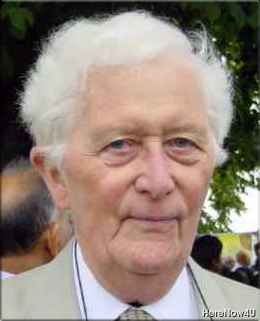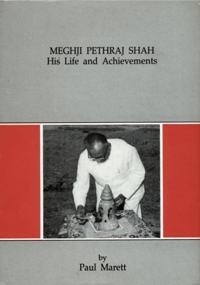
At the outset of their careers many people promise themselves that they will retire once they have achieved whatever aim they have set themselves in life, wealth, fame, power or just a comfortable pension. But all too often by the time they have reached their goal, they have become so entangled in their work and all its attendant complications that they find it impossible to give it up and retreat gracefully into retirement. Either they have no definite plans for retirement, or else they do not have the necessary willpower to give up. The temptations of material prosperity are still strong: while there is still more money to be earned men are unwilling to stop working and they neglect, or even forget, the call of retirement. Some people, indeed, have got so used to a lifetime's working routine that they cannot abandon it. Throughout their working lives their work has been the centre of their existence and they see retirement as a complete and stultifying inactivity.
Only the most determined of men can put into effect their intention of retirement on the attainment of the aims which they set long before. Govardhanbhai Tripathi is a well-known illustration of this in Gujarati literature. He was by no means wealthy when he made his firm decision to give up his work and go into retirement. But he made his decision and carried it out and fulfilled his intention of passing his later years in study at the feet of the goddess Sarasvati, patron of learning.
Meghjibhai, too, had a similar measure of determination. In all his activities Meghjibhai was cautious and he took every step, every business venture, after giving careful thought to it and to the potential risks. He planned his every move with care. Those who start poor and dream of riches often forget their former poverty once they have become rich. Surrounded by the fruits of their success, they hear nothing but the clink of coins, the rustle of banknotes. Dazzled by the lustre of money they see nobody but themselves. Having set out to become masters of wealth, most people ultimately become its slaves. However great their wealth becomes, they are not content and seek to increase it all their lives. Meghjibhai built up a great fortune but he remained master of his wealth because he regarded the acquisition of wealth not as the ultimate goal of life, but as a means to the service of humanity, the supreme aim. What use are riches if they are not put to the service of others? If we amass wealth and if our brothers and sisters in society remain immersed in the ocean of poverty and illiteracy, what use then is our wealth? Meghjibhai also, then, saw his retirement at the end of 1953 at the age of forty-nine not as an end but as a beginning, as a start of a new career almost, devoting the wealth he had acquired to the service of his fellow men and women. But it would be wrong to see this as a sudden change from blinkered businessman to philanthropist. In fact his philanthropic activities had begun long before. Meghjibhai's business acumen was only one side of his personality. He was a great entrepreneur but commerce was only one of his talents. To value a diamond a jeweller examines all its facets: to evaluate the greatness of Meghjibhai it is necessary to take an all-round view of his very considerable talents.
In business, Meghjibhai insisted on the most meticulous accounting for every penny, yet he never hesitated to donate sums of hundreds of thousands of rupees for public service. His decisions were swift; in a matter of moments he would assess the risks in a business venture involving great sums of money. Similarly he would assess the merits of a proposal for the public welfare and would decide on a donation of a hundred thousand rupees or more. His munificent donations are still bearing fruit, witness to the fact that Meghjibhai believed in making good use of wealth rather than hoarding it. Generosity was his innate quality. Beneficence was part of the heritage of his upbringing by his parents. As a pupil at school he was quite outstanding. He was not covetous about his top position in class but would willingly help his less clever fellow pupils to come forward. Thus, even before he became a teacher, he had started to develop the qualities of a good teacher and, even after he left his teaching job and plunged into business, the qualities of a teacher stood him in good stead at every step. He guided his colleagues and trained his inexperienced staff and workers with the same patience and perseverance with which he had taught his duller friends. He had warm feelings for his subordinates and treated them with sympathy. To err is human: if someone made a mistake he gave a generous warning. But he came down heavily on shirking, dishonesty and unpunctuality.
Himself the offspring of poor parents, he took compassion on the poor and even when he was very rich he never forgot what it had been like to be poor himself. When he first arrived in Africa he started with a job, which did not pay very much and he lived carefully and thriftily. When he became wealthy his lifestyle remained simple for he regarded himself as a trustee rather than owner of all his wealth. During his years in East Africa he progressed through all the stages of a successful career from poorly paid beginnings to control of a business empire. Thus he was able to make an assessment of the characteristics of all levels of East African society. On the one hand, large European-owned companies had set up big industrial enterprises, whilst enterprising Indians were well-established in business and trade. On the other hand, the indigenous Africans were suffering from ignorance and illiteracy and the majority of them still lived a very primitive life. Some foreign merchants prospered greatly by employing the native Africans in hard labour at low wages. Only a few industrialists like Meghjibhai made Africa their home and made efforts to improve the conditions and raise the standard of living of the local people. Meghjibhai's policy was always that every man employed in his business was paid a wage, which truly reflected the value of his work.
There were so many inequalities at different levels of society that it was not easy to remove them. Meghjibhai saw clearly that the inequalities in society could not be removed simply by providing money for the poorer sections of that society. Illiterate and backward people might not know how to use the money and could be tempted to fritter any aid away on useless things. The native people of East Africa often did not know how to make good use of money. There were no facilities for education and they did not appreciate its importance. Their children had not enough clothes to wear and they soiled them in the dust. This was the picture of the poor sections of society as Meghjibhai saw it. What then would happen if money were doled out direct? The recipients would be likely to squander it. It was necessary, therefore, to bring about an all-round improvement in society. The income of the people would rise only if the economy were improved, if industry prospered, production was raised and employment was provided for a large number of people.
The peasant farmers eked out a meagre living on the land: many of the indigenous Africans were agricultural labourers on the land of foreign owners. In this exploitation by foreigners poverty persisted and slavery endured in all but name. Modern civilisation had left many of the local people untouched and they wasted their little income on unnecessary things. Trapped by ignorance and backwardness, the people of this region were accustomed to poverty. Meghjibhai reasoned that you couldn't improve society by doling out money to a few people. Money to improve society must be put into projects, which will help the multitude. To improve the lot of the masses resources are necessary but if money is given directly to the poor, how long will it last? How long will the money help? How much better it would be to invest the money in new industries, which would increase employment for the poor and bring about regular and continuing improvement in income. Dr. Paul Marett
Dr. Paul Marett

